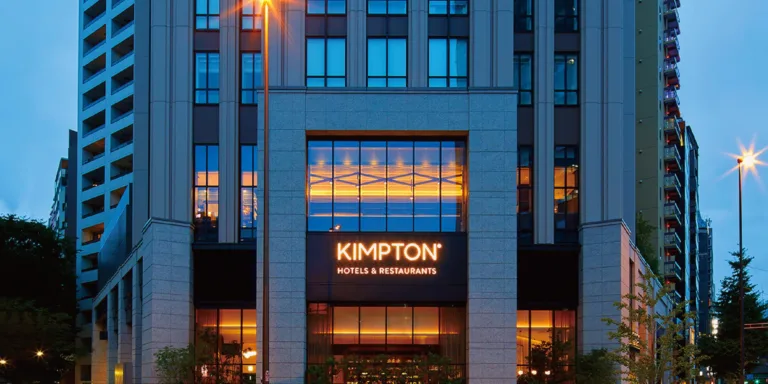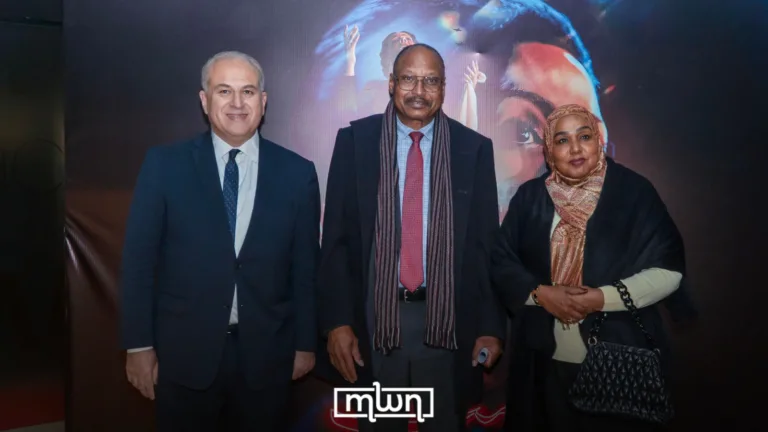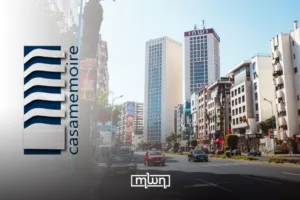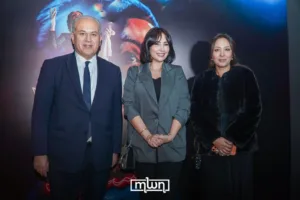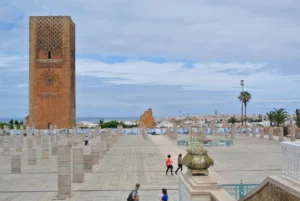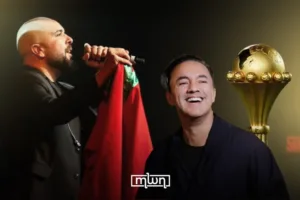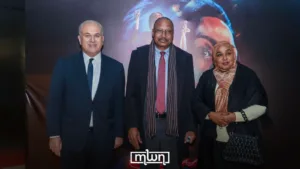Rabat – In an unprecedented step in the history of Moroccan TV production, the Moroccan series “Bnat El Assas” aired on the Emirati Sharjah TV channel right after the end of the 2023 Ramadan season.
While Morocco’s film and TV industry has been growing steadily, the new development presents a chance for the business to grow past the country’s borders and capture new audiences in the region.
The international expansion
Considered difficult to understand by the Middle Eastern population, the local Moroccan dialect “Darija” has been deemed a barrier to the expansion of Moroccan productions into international television.
“The current stage consists of familiarizing the public with Moroccan writing, direction, and production, before moving on to promoting the works with authentic dialogues without dubbing,” the scriptwriter stated.
In the same way that Turkish and Korean dramas have been able to reach and conquer diverse viewers as well as build a huge audience across the globe, the dubbing of Moroccan series in other languages and dialects such as Syrian, English, or French offers an opportunity for growth and evolution into a new set of viewers.
Bnat El Assas first aired during the Ramadan season of 2021. Directed by Driss Roukhe, the series stars Moroccan stars such as Aziz Hattab, Mouna Fettou, Dounia Boutazout, Mouhcine Malzi, Souad Khouyi, and Sandia Tajdin.
The drama tells the story of two sisters — Aicha and Hanane — who are forced to live on the streets due to their father’s gambling and alcohol addiction. They later meet a wealthy woman who agrees to help them and their mother work for her, but things don’t go as planned.
The show recorded the highest ratings of any Moroccan series during the Ramadan season in which it aired, with an average of eight million viewers per day.
The director explained that the broadcast of his series on Sharjah TV represents a crucial first step that will inevitably lead the way for the expansion of other Moroccan dramas across different Arab channels.
Several social media users commented on the matter, expressing optimism for the future of the Moroccan industry in light of the news.
One user said, “Our production is amazing! It’s interesting, I never imagined that our Darija could be difficult to understand by other Arabs.”
“That’s good news but we progressively notice our tv shows being heavily influenced by Turkish productions, I wish we can preserve our identity,” another one added.
An Instagram user also commented: “I loved “Bnat El Assas”, It’s nice that our production is finally gaining recognition”.
Oscar buzz
Morocco’s film industry has slowly been on the rise over the past few years, with a few directors and productions even gaining some international acclaim.
The Moroccan Cinema Center announced last year that Maryam Touzani’s The Blue Caftan, a dramatic film recorded in Darija, had been selected to represent Morocco in the 2023 Oscars shortlist in the “International Feature Film” category.
The film originally premiered at the 2022 Cannes Film Festival. It depicts a woman and her gay husband, who own a caftan store in Sale, Morocco, and hire a young apprentice.
Although the movie did not end up being nominated for the award, it was not the first time that Moroccan movies were submitted to the Academy. In 2011, Roschdy Zem’s Omar Killed Me also made the shortlist for the prestigious award.
Several films by acclaimed Moroccan director Nabil Ayouch have also been submitted for the award before, including Ali Zaoua, Horses of God, and Mektoub.
Overcoming production hurdles
Netflix still does not carry many Moroccan productions. This conspicuous absence has spurred the Moroccan government to take action to promote the film and entertainment industry in the country.
In October 2022, the Minister of Youth, Culture, and Communication Mohamed Mehdi Bensaid held a meeting with the Middle East and North Africa region officials and Netflix representatives.
“The meeting focused on the possibility of signing a strategic partnership with Netflix to produce Moroccan content, develop the film industry in Morocco, and give Moroccan cinema an international influence,” a statement by the Ministry of Youth, Culture and Communication said.
During the 23rd International Festival in Khouribga (FICAK) in May, president of the jury of the official feature film competition Meda Stanislas Bemile attested to the great progress of the Moroccan film industry but also highlighted glaring issues.
“Morocco is currently considered a model of success and excellence in the cinema industry in Africa,” he stated.
Bemile spoke about the hurdles facing the sector and the challenge when wanting to expand internationally.
“If we want to face the challenge of funding from which distribution, production, and exhibition in the industry suffer, it is imperative to sign agreements and establish partnerships and cooperation with the various countries of the continent”, he said.
The filmmaker also explained that the African Union (AU) is ready to help the African film industry in terms of financing. However, some countries still remain hesitant and slow to act.
While funding remains a big obstacle for Morocco’s film landscape, the dubbing of Bnat El Assas could pave the way to more international spread of the country’s cinematic output and eventually facilitate the securing of more funding.


